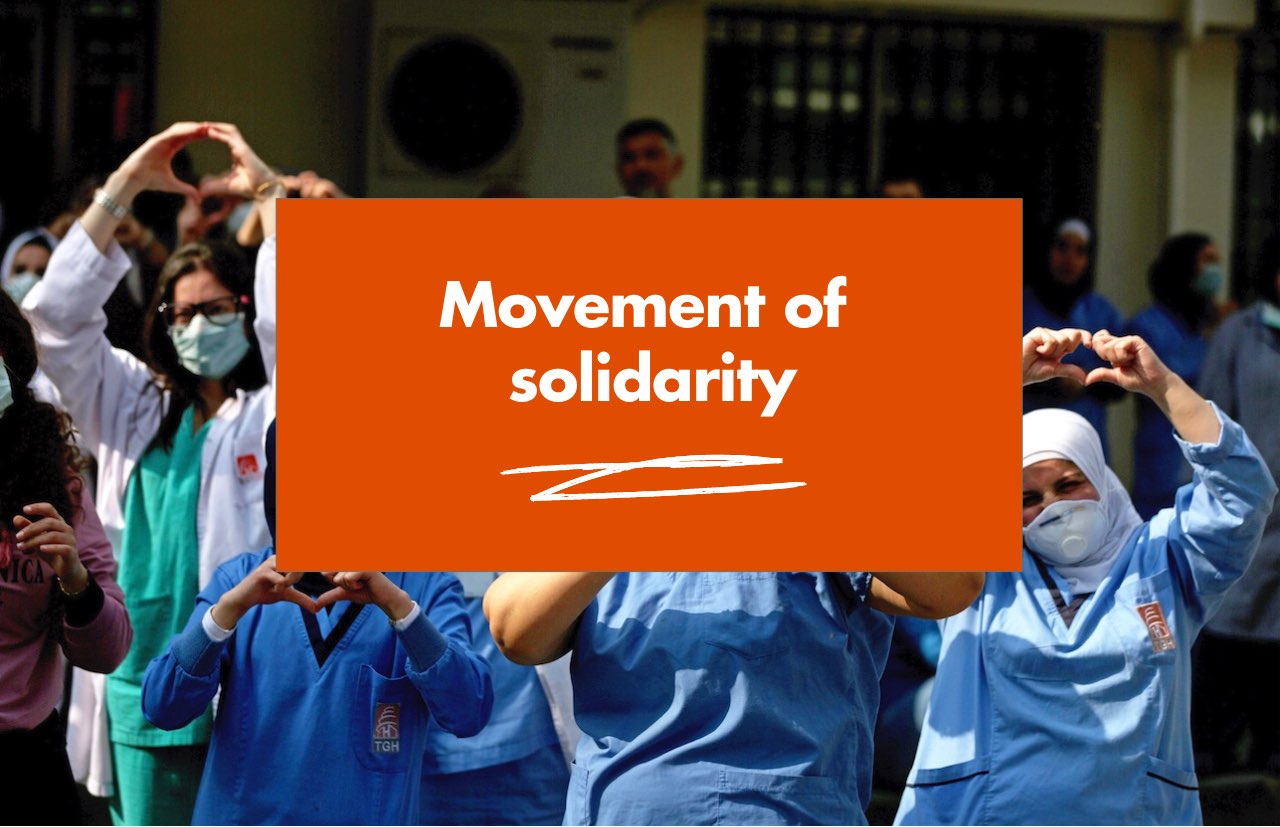
Communities all around the world are showing solidarity and compassion to help each other through the COVID-19 pandemic.
7 September 2020
In Ethiopia, Freweini Mebrahtu's factory normally manufactures reusable menstrual pads for girls, allowing them to stay in school. Mebrahtu temporarily transformed her business to manufacture masks and get them into the hands of those who need them most. "We have produced over 50,000 cloth masks to help out the most vulnerable women and children in our community," she said. She and her team distribute the masks along the main thoroughfare of Mekelle, a capital city in northern Ethiopia. Many women sell fruit and vegetables on this street and are in contact with people all day long, making masks essential for their safety.
In the USA, Fremont teenage siblings Prabhleen and Mantej Lamba have launched an initiative they called ‘Cards 4 COVID Heroes’ to let health care workers know how much they’re appreciated. In just two months, they’ve collected more than 250 thank you cards from members of the community, mailed to their home in Fremont. Then they’ve sent them to workers at four hospitals — each along with a $10 gift card. The teens also created an e-card option that lets people go online and fill out a Google form.
In El Salvador, after churches were closed to prevent the spread of the coronavirus, Priest Moises Rutilio Moran got creative helping combat the country's COVID-induced lack of food. Moran and his staff dug a pond and started selling affordable fish to the local community whose payments would keep the church running "in a reciprocal manner". "I know how to preach, teach the catechism, manage groups, but launching a tilapias project, never," the 41-year-old priest said.
In Sri Lanka, many of its citizens have dedicated themselves to protecting their communities and ensuring the stability of the healthcare system, food supply and greater economy. Iroshini Seneviratne Manike is an agrarian officer, who works closely with the UN Food and Agriculture Organization on several agriculture development projects. When Sri Lanka went in to lockdown, she was among the field officers who ensured that the farmers had the necessary support to keep producing goods despite the nationwide lockdown. “We cannot abandon our farmers who are driving the food production of the country. (…) We have to stand with them, encourage them and help them through the sharing of sound technical knowledge, now more than ever. The future food security of our country depends on it." Iroshini said.
In the UK, Coronavirus "heroes" have been chosen to switch on this year's Blackpool Illuminations. The group of Britain’s "Corona Heroes" included Leona Harris, a nurse from Rossendale who raised £30,000 in a week to buy tablets for patients unable to have visitors in hospitals, care homes, and hospices so they could speak to loved ones. Another "hero" was six-year-old Will Ritchie who raised more than £12,000 for Wirral University Teaching Hospital Foundation Trust Covid-19 Support Fund. He has a severe visual impairment and epilepsy and completed Will's Marathon Month in June to help the hospital - which has treated him - during the pandemic.
In India, in the six months since schools switched to online classes, teachers have had to find new troubleshooting skills every other day. Aastha Rayal is a teacher at Rajika Inter College, Uttarakhand. "Our school has 150 kids. But since the lockdown began, we have only been able to reach out to 90. Some don't have phones. Sometimes, there is no power for three days. (…) There are others who are shy about talking on the phone. (...) I would sit with three phones, dial as many children as I could and hold the class on the phone. I would do this thrice - at 11.30am, 12.30pm and 3.30pm. For students who didn't have phones, we made workbooks. We appointed village agents, who went around dropping the workbooks and picking them again after a few days. This way, most students could stay in touch with studies.” she said.
Disclaimer: The views, information and opinions expressed in this article are those of the persons featured in the story and do not necessarily reflect the official policy or position of the Office of the UN High Commissioner for Human Rights.
Have you supported those around you affected by the pandemic? Share your story with us. We would love to hear from you!
Share your story- I will respect your rights regardless of who you are. I will uphold your rights even when I disagree with you
- When anyone’s human rights are denied, everyone's rights are undermined, so I will stand up
- I will raise my voice. I will take action. I will use my rights to stand up for your rights.
people have stood up for human rights
We can all be Human Rights Champions
Tweet, Instagram or YouTube your action using the hashtag #Standup4humanrights.

#Standup4humanrights

